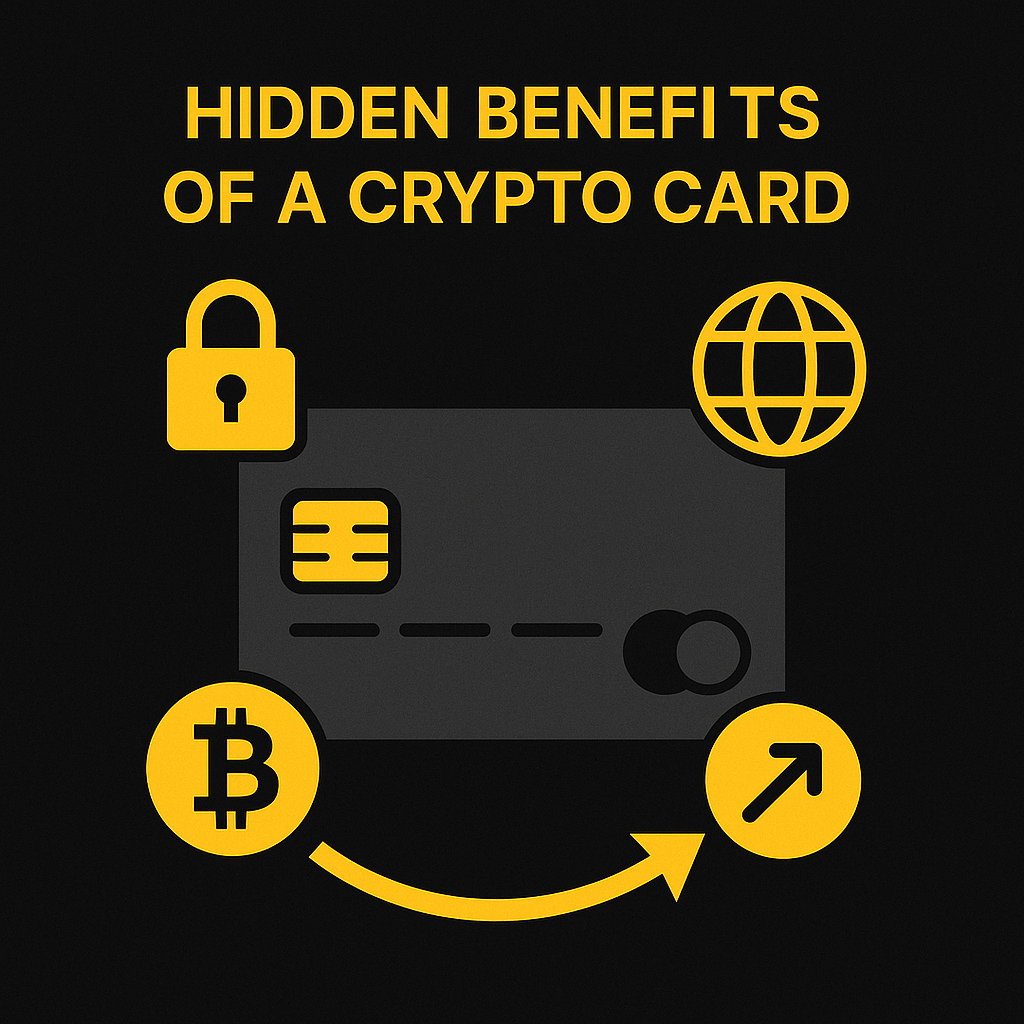The Hidden Perks of Using a Crypto Card You Didn't Know About

The Hidden Perks of Using a Crypto Card You Didn't Know About
Sure, you know crypto cards let you spend Bitcoin. Everyone talks about the basic stuff - instant payments, lower fees, global acceptance. But what about the hidden benefits nobody talks about?
I've been using crypto cards for over a year now, and honestly, the obvious perks aren't even the best part anymore. It's all the unexpected advantages that have completely changed how I think about money.
Let me share what I discovered.
The Privacy Revolution Nobody Mentions
Increased financial privacy - No need to run everything through traditional banks.
This hit me about three months into using my crypto card. I was looking through my bank statements (yeah, I still had those back then) and realised how much of my life was just sitting there in black and white.
Every coffee shop I visited, every online purchase, every subscription, every time I filled up gas - it was all there. My bank knew my routine better than my closest friends did.
My friend Tom from the Netherlands put it perfectly: "I realised my bank could literally map out my entire life just from my spending data. Where I go, when I travel, what I buy, what I'm interested in. It's creepy when you think about it."
With crypto cards, you're not completely invisible, but you're not an open book either. Your traditional bank doesn't see every transaction. You're not building a detailed profile for them to analyse and sell.
Sarah from Finland told me she switched to a crypto card partly for this reason: "I got tired of getting targeted ads for things I bought weeks ago. Now my purchasing data isn't being harvested and sold to advertisers."
True Financial Freedom Across Borders
Borderless lifestyle - Pay seamlessly across the globe without FX headaches.
This one seems obvious until you actually experience it. Then it becomes life-changing.
I'm not even a full-time traveller, but I've used my crypto card in 18 countries now. The freedom is intoxicating. No more hunting for ATMs that work with your bank. No more getting terrible exchange rates at airports. No more calling your bank to "notify them of travel" so they don't freeze your card.
My buddy Marcus spent six months working remotely across Europe. "I had clients paying me in different currencies, I was moving between countries every few weeks, and my traditional bank was a nightmare," he said. "Constant fees, constant complications, constant stress about whether my card would work."
His crypto card? Worked everywhere, same low fees, no complications.
But here's the hidden part - it changes how you think about money itself. When your money works the same everywhere, borders start feeling artificial. You stop thinking in terms of "home currency" and "foreign currency." It's just money.
Lisa from Australia summed it up: "I used to plan trips around banking logistics. Now I plan trips around what I want to see."
Getting Paid to Hold Money
Access to staking rewards - Some platforms reward you just for loading your card.
This blew my mind when I first discovered it. Some crypto card platforms don't just hold your money - they put it to work and share the rewards with you.
I load my card with USDT, and while it's sitting there waiting for me to spend it, it's earning about 4-6% annually. It's like a checking account that actually pays you meaningful interest, except the "interest" comes from DeFi protocols instead of the bank lending your money to someone else at higher rates.
Jake from Canada discovered this by accident: "I loaded my card with $5,000 worth of stablecoins and forgot about it for a month. When I checked back, I had earned $23 just for having money on the card. My traditional bank pays me $0.02 per month on my checking account."
The rewards vary by platform and how much you have loaded, but it's real money. My friend Elena earns about $150 per month just from having her crypto card loaded with funds she's going to spend anyway.
Your Personal Inflation Hedge
Hedge against inflation - Spending crypto while your fiat loses value? Win.
This one took me a while to understand, but now it's probably my favourite hidden benefit.
When inflation is running hot (like it has been), holding cash feels stupid. Your purchasing power is literally melting away. But you still need spending money for daily life, right?
Crypto cards solve this perfectly. I keep my spending money in Bitcoin or Ethereum instead of cash. When I need to buy something, the card converts it instantly at current market prices.
If crypto goes up, I benefit. If crypto goes down, well, at least I'm not losing money to inflation on top of market volatility.
David from Germany explained it well: "The euro has lost about 8% of its purchasing power in the last two years. My Bitcoin has gained 60% in the same period. Why would I hold euros for spending when I can hold Bitcoin and convert it instantly when I need to spend?"
It's not perfect - crypto volatility is real. But for people who believe in crypto long-term, it lets you maintain exposure while still having liquid spending power.
Skip the Financial Background Check
No credit checks - Most crypto cards don't require invasive approval processes.
This one surprised me because I didn't think I needed it. I have good credit, steady income, all that traditional stuff. But the simplicity of getting a crypto card was refreshing.
No income verification. No credit score analysis. No waiting weeks for approval. No explaining what I do for work or proving I deserve to access my own money.
But for some people, this is huge. My friend Alex from Poland had bad credit from some financial mistakes in his early twenties. Traditional banks treated him like a criminal. Credit card applications were either rejected or came with terrible terms.
His crypto card? Approved in 10 minutes. No questions about his past, no judgment about his credit history. He just needed to prove his identity and load some crypto.
"It's the first time in years I've felt like a normal person dealing with financial services," he told me.
This applies to anyone who doesn't fit the traditional banking box - freelancers with irregular income, people who've had credit problems, and anyone who's been rejected by traditional financial services for any reason.
The Psychology Shift Nobody Talks About
Here's something I didn't expect - crypto cards change how you think about money at a fundamental level.
With traditional banking, money feels controlled. You're asking permission to access your own funds. International transfers require approval. Large purchases get flagged. You're constantly working within someone else's system.
With crypto cards, money feels owned. It's your crypto, on your terms, accessible instantly, spendable anywhere. You're not asking permission - you're just using your property.
Maria from Spain noticed this: "I stopped checking my bank balance obsessively because I wasn't worried about overdraft fees or holds or any of that banking nonsense. My crypto card just works."
You're Not Just Using a New Payment Method
You're stepping into the future of finance.
This sounds dramatic, but it's true. Every crypto card transaction is a tiny rebellion against the traditional financial system. You're proving that we don't need banks as middlemen for every financial interaction.
You're supporting the infrastructure that makes financial sovereignty possible. You're demonstrating demand for better financial tools. You're voting with your money for a more open, accessible, global financial system.
When enough people do this, it forces traditional institutions to adapt or become irrelevant.
The Compound Effect
Here's what I've noticed after a year of using crypto cards - the benefits compound.
The privacy protection gets more valuable as your financial data becomes more scattered. Borderless payments become more useful as you realise you can travel spontaneously without financial logistics. The staking rewards add up to meaningful amounts. The inflation hedge becomes more important as fiat currencies weaken.
But the biggest compound effect is psychological. You start feeling more in control of your financial life. You stop feeling dependent on traditional banking systems. You start thinking globally instead of locally about money.
Real Talk: It's Not All Perfect
Look, crypto cards aren't magic. There are still some limitations:
- Not every merchant accepts cards (but this is rare)
- Tax implications can be complex depending on your country
- You need to understand crypto basics to use them effectively
- Some platforms have limits while you build up usage history
But these downsides are temporary and getting smaller every month. The hidden benefits I've talked about? Those are permanent advantages of financial sovereignty.
The Bottom Line
Everyone talks about crypto cards as better payment tools. And they are. But they're also privacy tools, financial independence tools, inflation hedge tools, and freedom tools.
The hidden perks aren't just nice-to-haves. They are fundamental advantages that make crypto cards superior to traditional financial products in ways most people don't even realise yet.
If you're still on the fence about crypto cards, you're not just missing out on better payments. You're missing out on a completely different relationship with money itself.
The future of finance isn't just about better technology. It's about better principles - privacy, freedom, global accessibility, and personal sovereignty.
Your crypto card isn't just a payment method. It's a statement about what kind of financial future you want to live in.
